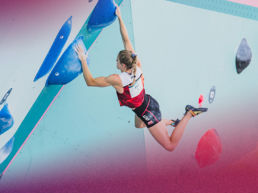In 2015 95% of all total sports program viewing happened live. Zuckerberg really wants to add ‘on Facebook’ to the end of that sentence.
The Facebook CEO has been paying athletes to use his new toy, all the while tweaking his algorithms to push it to the top of your News Feed. Facebook Live offers viewers so much more than a shaky perspective into another world, it provides a platform for professionally produced live streaming of events. Broadcasting is about to change, especially in a category known to be the highest-value of all TV rights deals – sports.
Anyone with a standard Facebook page and an internet connection can now offer their followers an interactive 90 minute Live experience. This means brands also hold the key. Big hitters like Sky, ESPN and the BBC have already dipped their toes into Facebook Live, and the numbers are impressive.
Reaching the audience
BBC’s first use of Facebook Live was on Match of the Day, with Gary Lineker revealing the running order of the evening’s matches on the programme. That video generated over 1.3 million views.
Sky has used Live to show exclusive content, such as a discussion on the England football squad with Soccer AM presenter Adam Smith and international footballer Alexandra Scott. That video generated 150,000 views in an hour. The numbers underpinned by Zuckerberg’s declaration that 500 million people watch Facebook video every day. That’s a big audience.
Where it gets a little nervy for sports rights holders is the live streaming of events themselves – the things that all the other media works towards. In May this year, REDTORCH used Facebook Live to stream events at FISE(Festival International des Sports Extrêmes) for the Festival’s main event in Montpellier, France – a world first for the sports festival brand.
The BMX Spine Pro Final reached nearly 1 million fans and achieved 25,245 reactions, comments and shares– 15,000 more than the most watched FISE video. This demonstrates the immediate power of Facebook over traditional broadcasters – not only does it have the ability to reach a big audience, it encourages real-time interaction, at home or on the move.
The end of TV?
Facebook COO Sheryl Sandberg says Facebook isn’t getting ahead of itself – “in terms of replacing TV, we certainly don’t think we’re going to replace any one medium,” she said. “We do think that eyeballs are shifting, not just from TV but from a lot of other formats, to mobile. And we are positioned very well to not just participate but to lead that shift.” An accurate perception. The opportunity has already been established for social media to take on traditional broadcasters.
Twitter’s impressive acquisition of NFL’s Thursday Night Football rights alongside CBS and NBC shows a changing attitude to sports broadcasting – like all content owners, sports organisations are intent on ensuring viewers can access their events on any device, at any time. Tools such as Facebook Live are giving sports rights holders the opportunity to maximise the content they are producing, reach a new audience and interact with that audience.
‘Sport on social’ – has a nice ring to it doesn’t it?





